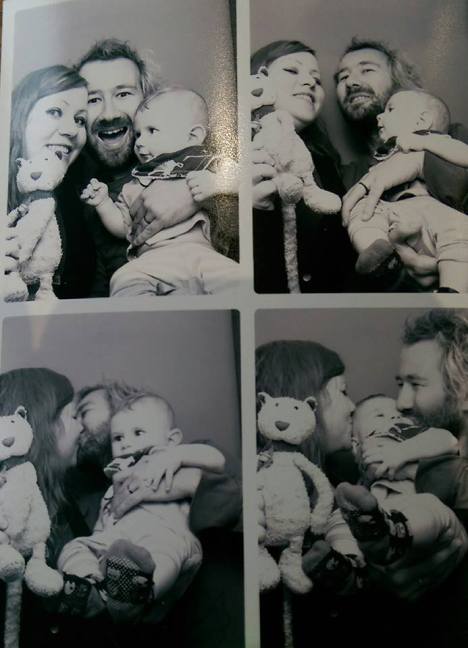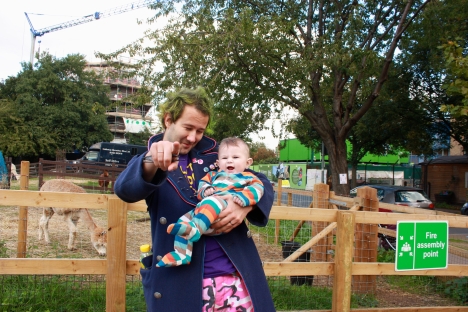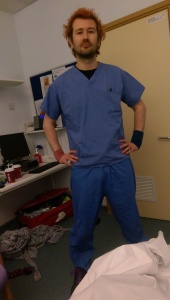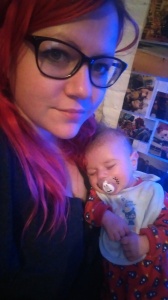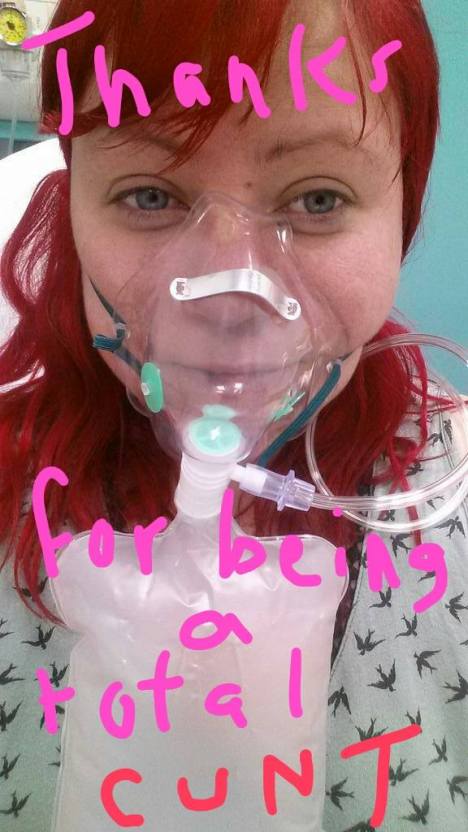Mental illness isn’t the bogeyman.
I’ve been quite quiet here. It’s not as though I haven’t been trying.

See?
Those drafts were mostly interrupted by bouts of exhaustion and blankness. I’d tried to write something funny and light, but it felt quite forced.
What’s prompting me to write today is the heartbreaking death of Charlotte Bevan and her four day old daughter, Zaani. What’s known is that Charlotte had a history of mental health issues- namely schizophrenia and depression, according to her family- was severely sleep deprived and had stopped taking her medication as she wanted to breastfeed. She left the hospital in clinical slippers without a coat, her baby wrapped in a blanket. They both died, in this freezing December, near the Clifton Suspension Bridge, a common suicide spot.
I’m not going to speculate. I’m not going to say that I recognised- viscerally- the hollowness in her eyes as she walked past a series of CCTV cameras. Nor wax, too much, about my own terror of visiting that lonely place. I’m not going to pontificate on mental illness or womens’ agency, paternalistic attitudes or breastfeeding. I’m not even going to post a screed on the woeful provision of perinatal mental health services in this country.

Hint: areas in the red have no perinatal mental health provision. I live in an orange bit.
Services and support which should be available everywhere- to every woman- who is pregnant or has given birth. I’m not going to talk about the senselessness of this when a woman’s risk of suicide is highest in the year postpartum. Nor that it’s any woman- not just a woman with a known history of mental illness.
So what I’m going to do instead is tell you- maybe selfishly- about my own experiences of being a pregnant woman with bipolar disorder, whose mother had postpartum psychosis, who is therefore under the perinatal mental health and considered a high risk pregnancy. I’m going to explain how that feels for me, and about the kind of choices I’ve had to make. I’m going to talk to you about what’s happened to me since I peed on the stick and found out I am expecting a son (not a daughter- that was a bit of surprise at the anomaly scan. I have grown a penis. Whole other blog in that and how I shamefully have far more gendered ideas than I thought I had).
One of the reasons I’ve kept my pregnancy related bibblings confined to my Twitter and Facebook is because this blog is, and always has been, a mental health blog. And my mental health has governed my life for the past decade. Every major life event has been impacted in some way. I only got 7 GCSEs because I had a breakdown. I was then kicked out of college because I was a rambling, nonsensical whirl of mania. I moved to London in its midst. My father’s death was followed by my admission to hospital. A series of job losses, four years on benefits. I dropped out of my mental health nursing degree partly because I had become suicidally depressed. The good stuff, too. I won an award for a play based on this blog. Not me, and not my life, but my own fractured narrative of mental illness. I’ve had writing opportunities because I write about mental health in a way that people enjoy and relate to (thank you). But that’s all anyone has ever really been interested in about my writing. Or about me.
Here I am, pregnant. And it’s such an abstract thing, though increasingly less so over the weeks. 29 have passed- from a feeling, a line, a long stretch of sickness (which is also why I have been more comfortable with the microblogging of Twitter- constantly vomiting and general exhaustion doesn’t render you the most capable of stringing together a….se), to now experiencing flutters and rolls and bumps. It’s still so strange to me that this “being pregnant” will become, “giving birth” (argh!), to a newborn, a tiny little stranger, who will become my son, and I will become their mother. And they’ll have words, mannerisms, be a sovereign human being in their own right, have memories of me, and I’ll have memories of them. Hopefully one day we’ll talk about them together. And they’ll have a name.
And this is mine. It’s all mine.
It doesn’t belong to a doctor, it doesn’t belong to a CPN, a diagnosis, a theory, a plan, a pathology, a movement. It belongs to me, and to my husband, and to the people we love who are sharing in this with us. Of course, it’s pregnancy, a highly medicalised event. It has its own language, it’s own pathology, its own plans. But they have been so reassuringly, wonderfully, vividly familiar to me. Here is a path my mother walked down. And you. And you. As disempowering as the experience can be, as lonely, as radicalising to my feminist ideas of myself as a woman and a female, it is ordinary. It is so ordinary that when I vomited my breakfast in a yellow arc onto the black and white tiled floor of my local cafe, the women who worked there didn’t flinch. “It’s okay, we’ve been there, we remember what it’s like”. I felt part of some great tradition, and here was the initiation ceremony.
But Charlotte Bevan’s tragedy can’t help but make me think of my fear of the future. I haven’t been the perfect pregnant woman by a long stretch. She is slim, she eats organic food (except eggs, cheese and raw fish), she doesn’t drink, nor smoke, nor get stressed. She does 30 minutes of gentle exercise a day (maybe yoga or pilates), she doesn’t dye her hair nor pet her cats. She doesn’t take any medication, not even for one of the numerous headaches she’s likely to have. She does all this not just because she is told to, nor because she is “good”, but because she became a mother at the moment of conception. She’s the selfless mother, the ideal woman. She’s not a person but a habitat from when sperm meets egg. That’s the perfect pregnant woman, and she’s still not perfect enough.
I am so far from that ideal that it’s hard not to feel like a failure already. I’m obese from years of psychiatric medications. It doesn’t matter that I have no weight related problems (as rigorous testing, hypotension and seemingly endless urine and blood samples will confirm). It was enough for me to be told, almost accusingly, that I WILL get gestational diabetes and pre eclampsia and that they’ll need to keep an eye on what I eat (which was pretty easy- just check the floor of the train at Tulse Hill station). I smoked and drank, I drink more caffeine than recommended because for half of the day I am in a fugue from the antipsychotic medication I’m still taking. I get stressed and more than that, I have a diagnosis of mental illness, I am struggling to exercise due to exhaustion and I cuddle my two silly, wildly affectionate cats. I don’t feel like a mother yet, and I wonder when I will. I don’t think in terms of, “little angel”. I didn’t undergo some sort of transformation as soon as I became pregnant. I still haven’t.
I have been reminded so frequently of my own imperfections as a woman that I have felt that my, “maternal habitus” is a cesspit. I have, at every stage, thought, “This is when I lose it”. Blighted ovum, then miscarriage and now I’m petrified of stillbirth, after that, it’ll be SIDS. So I’ve been afraid to bond with the little Bean in there, even though he’s growing wonderfully, booting away and, usual pregnancy niggles aside, I’ve had a pretty easy go of it. The anxiety has at times been so bad that my psychiatrist has added a brand new diagnosis to my pregnancy notes- generalised anxiety disorder. The anomaly scan was supposed to be a turning point, and it was. It looked like they had a rare and serious birth defect called esophagal atresia. We spent the next few days, waiting for a rescan, in a fog of terror. My husband ran ahead from me as we returned from hospital to hide the little leopardprint coat we’d bought them and to put away the box of baby stuff that had been donated to us. All our images of taking our baby home after the birth, the mundanity of feeding and changes, were replaced with immediate operations, long stays in the NICU and a possibility our baby would have a potentially life-ending chromosomal disorder. (The rescan was clear. Subsequent ones have been, too, but we still can’t relax).
As much as this does not belong to mental illness, mental illness does belong to me. I can’t, as much as I want to, separate that from the seismic physical and emotional changes I’m going through right now. The problem with being in the mental health system for a long time is you’re told so many different things are wrong that eventually, you believe nothing is. And you can be a bit shocked when others don’t share that belief. Initially, I resented their intrusion. Imagine what I would be writing if they didn’t exist in my area.
In the beginning
Due to the, “holy fuck, what is this, am I dying” nausea I experienced until 23 weeks, I knew i was pregnant pretty quickly. I got a positive test at 5 weeks. The first thing I was worried about was my medication- I had no idea if it was safe to take, but also no idea how I’d cope without it. The first few weeks were the hardest emotionally. We’d just been told we were being evicted and had to find somewhere else to live. That stress coupled with the (happy) shock of being pregnant and the hormonal surge meant I spent the first month oscillating wildly. But it wasn’t really anything unusual- it was a reaction to the situation we were in and biological fuckery. (What is unusual for you? Write that shit down now. Give a copy to the people close to you).
I went to see my GP, who congratulated me, said she couldn’t definitely advise me on my medication and referred me to the perinatal psychiatry team. She told me to continue to keep taking my medication, and so I did (and still do). At the moment I’m only on Quetiapine, which is an antipsychotic. She didn’t seem fatalistic or concerned, which cheered me up. I’ve written before about some of the fears I had about pregnancy. Mostly, they’ve been unfounded, but I’m still afraid.
The perinatal psychiatry team
Midwife number 1
Risk, risk, risk. You have a high risk pregnancy. No fancy home birth for you (fuck that, I want TEH DRUGS). Your BMI is over 30, you’ve smoked and you’re mental. The midwife took my history as I shrank into my chair. She wrote, “SLASHES ARMS SINCE AGE 14”, something which shocked me so much I asked her to correct it. It’s inaccurate- I haven’t self harmed in 5 years- and the word, “slash” is such an ugly, deforming word that I didn’t want associated with me, or my pregnancy. She apologised and changed it, saying she wanted me to be comfortable.
A few weeks later, wearing my Baby on Board badge with my sleeves rolled up in the sweltering heat on the tube, I saw people clock- with disgust- my scarred arms and the badge. And realised that I now have the rest of my and my child’s life with this. Flashes of bringing them to the swimming pool and being stared at. School gates. Grief.
Fuck ’em.
The perinatal nurse
I had to give a different history to the perinatal nurse who came to visit me at home. This was the story of my life, told, lightheaded from nausea, in my garden. It was summer then, and we were just getting settled into our new flat. Robert was asleep upstairs after a nightshift. I offered tea, which she refused. She has that light, almost incredulous way of speaking that some mental health nurses do. I’m already familiar with them- I did a few days with the perinatal nurses when I was a student, and they seem altogether more gentle than their CMHT counterparts. She said, “Oh, what a lot you’ve been through. It’s no wonder you’re so anxious and worried about getting attached”. At this point, I was correcting people who said, “You’re having a baby!” with, “No, I’m pregnant. It’s different”. I wasn’t really sure what to say to that. I know people mean well, but my life hasn’t been that bad and I don’t like it when people head-tilt (the IRL version of italics) or feel sorry for me.
She taught me some breathing exercises for panic attacks (my panic attacks abated somewhat for a while. Being so busy does that. They’ve returned a bit lately) which don’t seem to come close to controlling the death terrors I experience at night, and made an appointment with the psychiatrist for me.
Before she left, I felt like I needed to ask.
Will I be referred to social services?
Midwives can sometimes be a little cautious with women who have mental health issues, she admitted. But no, the midwife hadn’t made that call. “Are you planning to?” No, not at the moment. If we’re worried that you might need more help in coping then it’s something we can talk about.
I still haven’t been referred, though my psychiatrist admitted that when I called them (having to reschedule that first appointment as I didn’t receive the letter with the date), they had considered doing so. But I am coping, and if I continue to, good. “Will they take my baby away if you call them?” No, that’s not what they’re there for. Sometimes, we can need a bit of practical support. We want to keep you and baby together, not separate you. It’s usually better for both mum and baby to stay together. We’re here to support you in staying well.
While I’m glad I didn’t get an automatic referral, I know this may be partly due to my diagnosis. My perinatal psychiatrist believes that bipolar I disorder is the right diagnosis, and that’s what we’re working with. I tend (these days) to be okay for ages, then get kicked right up the hole with it. That’s where the, “risk” largely is- bipolar disorder has a high relapse rate during pregnancy, tricky management and is more likely than depression to lead to postpartum psychosis. My mum also experienced psychosis after birth, which kicks my risk up past 50%. So, it’s a pretty shit diagnosis to have during pregnancy. It does have an advantage- throwing medication at it can work quite well (as long as you aren’t stupid enough to throw just an antidepressant in there) Everyone’s different, but depression, mania and psychosis generally have quite obvious triggers, and well tested treatments. It’s not more or less “real” than other mental health issues. There’s no, “real” one, really. We still don’t know what causes any of them, but some are viewed as more biologically based than others, and that makes them, if not easier, then more predictable to doctors..
Some women I know who are as functioning as I am, but who have a diagnosis of personality disorder, have been referred to social services. This isn’t fair, and I think it’s partly to do with the stigma surrounding it, and partly because it might be viewed as less predictable than bipolar disorder. It could also simply be their trust, doctor and nothing to do with their diagnosis. I did actually have borderline personality disorder as a diagnosis in the past, but it hasn’t been one I’ve ever been treated for. I don’t believe I have it, nor does the perinatal mental health team, who noted it was historical, not a concern and that I seemed stable. I felt like an arse for being glad about this. It’s partly due to the fact that when it’s flashed up on the screen in the past, I’ve had a lot of irrelevant, tedious questioning about self harm (not in years) etc. You may as well be asking me about a decade-old leg break.
But these means that women who have been referred and monitored very closely might have a different story to me. I’ve been largely okay so far, but that’s the shitpantsingly scary thing about mental illness and particularly mental illness in pregnancy- it can descend with terrifying swiftness and brutality.
The mental health midwives
When I was referred to perinatal psychiatry, my care was transferred from the community midwives to a specialist team called the Brierley midwives. They’re 8 community midwives who specialise in two things:
1) Home births
2) Women who have a history of mental health issues
I felt pretty smug as half the yummy mummies in East Dulwich want the Brierley midwives and I got them automatically for being mental! Some perks of the job, eh.
They’re a small team, split in two. So I essentially have 4 midwives. I have my named midwife, my first port of call. Throughout my pregnancy, I’ll meet all the rest in the team of 4, so when I go into labour, the midwife won’t be a stranger to me. That’s pretty good and a relief for someone like me who has been struggling with anxiety and likes to know things in advance.
I have the normal midwife appointments with them, but can also have a few extra if I’m nervous. They’re not trained in the same way mental health nurses are. They’re more holistic in their approach, and take care of your emotional health as well as the health of the pregnancy. They’ve been great, and are always very keen to let me listen to that lovely little horsehoof heartbeat sound. They’re not hugely different from ordinary community midwives.
The perinatal psychiatrist
The perinatal psychiatry team are situated in the same hospital as the maternity unit. It’s a rather unpleasantly long walk down a thousand blindingly shiny corridors that seem to swim and shimmer to the exhausted, teary-from-vomiting eyes. The reception area has always been empty when I’ve arrived. There’s only about six seats and my burgeoning behind means I need two.
I’m instinctively, defensive around psychiatrists. I’ve worked with them professionally so I know they’re human beings. Mostly, they’re also compassionate human beings. As doctors, though, they are drawn to the mechanical and the explainable. It’s sometimes disturbing to feel you’re a puzzle to be solved rather than a human being, too. They have so much power over the lowly mental that it’s extremely hard to let your guard down. This time was, at least, quite different from when I’ve seen psychiatrists attached to the CMHT. I hadn’t been summoned there like a naughty child to the headmaster’s office. I was well and there to take advantage of their support- conversely, it meant I was also a little resentful of having it forced upon me.
Alongside quite a few leaflets. I keep them in the living room for easy reading for us both. Got a spare minute with a cup of tea and want to terrify yourself?

Ta-da!
Can I take psychiatric medication throughout pregnancy? Can I breastfeed?
When talking about medication, I told her that I’d tried to come off it numerous times but suffered such awful withdrawal (insomnia, itching, eventual quasi psychosis from sleep deprivation) that I’d always returned to it. She frowned and said Quetiapine didn’t have any withdrawal symptoms. As I tried to elaborate, she picked up a copy of the BNF and began flicking through it to disprove me. That was a strike.
As fat as I am due to it (Quetiapine doesn’t cause weight gain, she said. Strike 2! Tell it to the people suing the company that makes it for their diabetes), it’s the one medication that has helped me stay sane, and largely because it means I can sleep. I am a natural insomniac and very prone to hypomania and hyperactivity because of it. Getting regular sleep has been the lynchpin. Although I went into the appointment to argue my case for coming off it, I was secretly hoping she’d tell me it was okay and I should stay on it, as the thought of going through withdrawal and insomnia was unbearable.
She did. Quetiapine is a category C medication in pregnancy. It means risk can’t be ruled out, and it can’t be ruled out because it’s unethical to test on pregnant women. Case studies so far indicate the risks are gestational diabetes and diabetes 2 (I have been tested twice for GD- I don’t have it and won’t be tested again) which can cause a high birthweight. Confusingly, the consultant obstetrician (I get one of those due to being a high risk pregnancy), says it can cause low birth weight. So go figure. There’s also evidence that it can cause slight respiratory problems after birth, sedation and babies may be a little behind developmentally for a few months, but catch up. Their APGAR score is generally 9 or 10, which is great.
These are all scary sounding things and I’m still scared of them. I do feel a sense of failure and wish I was, “normal” and didn’t take psychiatric medication. I think about how sedated and dopey I am and feel a huge sense of guilt for what it might be doing to my baby. And because there’s no long term studies, I also have no idea what it’s doing to their developing brain.
But. I have to try and put my faith in…something. Myself to keep well, which cannot be done by willpower alone and especially not now. In the perinatal team. As much as she initially rubbed me up the wrong way (I warmed to her a lot in subsequent appointments. It’s never easy to go in and tell your whole life story to a stranger), she is the consultant and I trust her opinion. Most importantly, I’m being closely monitored- and so will Bean when they’re born and afterwards.
So, breastfeeding.
Breastfeeding is great. Boobs make milk! How mad is that? You’ve had them your whole life and then, when you’re pregnant (or taking Risperidone), they inherit this magical superpower. MILK! It’s food! Holy shit!
But some women’s boobs don’t make milk. Some women find it too uncomfortable, painful or downright weird to breastfeed. Some can’t, some don’t want to, and that’s all fine. Because you know what else is great? Making our own choices about our own bodies. Breastfeeding is not the be all, end all, and the medical establishment- and frankly, other women- have a lot to answer for in downright shaming women about breastfeeding.
It’s better than formula in some ways (and not as good in others- formula has added vitamins our bodies don’t make, formula is very convenient too). It does help with things like shrinking your uterus back (ping!) and as for bonding, I don’t know. You can still do skin to skin contact with a bottle and bond that way. Breastfeeding doesn’t give you nor your baby immortality. But I can understand why women- even if you sort-of discount that intense societal and medical pressure- really want to breastfeed. I do. I want to do to it because I haven’t done it before and it’s a new experience. I want to do it for the benefits it does have. I want to do it because it’s cheap and we’re skint. I want to do it because boobs, milk, weird.
The general blanket advice for women taking medication, particularly psychiatric ones, is don’t breastfeed. Please get a specialist opinion on this if you can. Some resources include Drugs in Breastmilk from the Breastfeeding Network. If you know someone who is facing this question who isn’t getting good advice, try to help them find it. Because it’s a big one. Women are being encouraged- and deciding themselves out of pressure, desire, guilt, complex, personal reasons I would never want to judge or belittle in any way- to stop taking medications which are potentially keeping them safe and stable so that they can breastfeed. This is wrong. I don’t mean medically, I mean morally. Women should be encouraged to put their health first. Believe me, I understand that, especially when you’ve struggled with your mental health, you so want to do the, “right” thing, the, “natural” thing, the thing to bond and connect. But formula is not going to kill a baby, whereas a relapse could kill the mother. That’s as brutal as it gets, but it’s true.
I got specialist advice from my psychiatrist who says I can breastfeed. A very tiny concentration of the medication will be in the breastmilk. This study reports 0.1% of my dose and no adverse effects. I’m on the lowest dose of quetiapine I can get away with, but it’s likely that’s going to increase as it’s working less effectively as time goes on. So again there is a little risk with breastfeeding. I’ll be monitored (awful word) and if it’s having effects on the babe, then I’ll switch to formula. Will be upset and disappointed? Probably. But what I am repeating to myself, in my rational mind, is my health first. I can’t look after my baby if I’m unwell.
The Birth Planning Meeting- making a mental health advance directive
I last saw my psychiatrist about 10 days ago. I’m doing pretty well so we won’t have any more appointments individually, nor will I be seeing my perinatal nurse again unless I ask to. I will be seeing them on the 15th of December to have a birth planning meeting.
This is essentially where your whole “team” (including your future health visitor) gets together to talk about your birth plan and what you want to happen afterwards, especially if you become unwell. As rationally as I’m writing this, as ticking-along as it’s been, that’s a possibility. What do I want to happen, what do I not want to happen? Would I be okay with an increase in antipsychotics, and if so, are there ones I don’t want to take? (This may largely be out of my hands if I do get sick, but my wishes will be taken into account). We’ll also discuss treatment options should I get sick, such as the mother and baby unit. There will also be general discussion about labour, like with any woman.
I’ll know more about this when I actually attend it, but I feel quite reassured by it. Robert will be there too, and no doubt find it all quite bizarre.
What will be happening is that I will continue taking medication after the birth. And there is a huge concession here- it means my husband has to give up work when the baby’s born. You can imagine how financially shattering this will be, it’s maternity leave (I can only take 6 months at the very most, and that’s a huge struggle) on one salary. But he works nights exclusively, and hasn’t been able to find a day job. I work full time and want to return to work. The “team” agrees that although I’m likely to have sleep deprivation like any new parent, it is completely essential that I get as much sleep as possible to stay well, and this means Robert will have to stay at home with me and do nights with the baby so I can take my medication and sleep. My doctor and midwife are pretty worried about me going back to work so soon, but I don’t really have a choice as we can’t afford otherwise. I only get 3 months maternity pay and have been saving up otherwise.
The Fear
When I got home from work tonight, I broke down crying for the first time in months. Despite all this planning and all this support, I am terrified of becoming unwell after the birth, terrified of it happening now, too. It does feel so frighteningly out of control, even after writing 5000 words as to how it isn’t. I feel like I don’t really have control over anything.
I am scared of how quickly women become ill after pregnancy and scared it’ll be me. Scared I won’t be able to ask for help, scared I’ll be beyond even recognising I need it. Scared Robert won’t be able to cope, scared of being alone (it is the loneliest place in the world), scared of not being able to care for my baby. Scared of being a failure. Scared of not being able to bond. Scared of feeling trapped, scared of what I’d do if I did. Scared of the fact I have made the one irreversible decision of my life. Scared of a lot of things a lot of women are scared of. That spiky sea urchin in my brain is a saboteur and a liar and I make a conscious effort not to listen to them.
But having support does help. It does make a difference. I have a partner, which is support a lot of women don’t have. I have an understanding workplace, too. I have the perinatal team. I have these clear things in my head, here, and in my notes. It isn’t the quivering inarticulate terror of when I became pregnant. It isn’t the kind of fear and uncertainty I imagine many women who don’t have support feel. I don’t know what support Charlotte Bevan had. I hope her family have some support right now for what they’re going through.
All women need and deserve support when they’re pregnant and afterwards. A check up at 6 weeks is not good enough. A questionnaire will not cut it when we are so ashamed of how we’re feeling and so afraid. Feel free to ask me anything here or on Twitter- ms_molly_vog. If you’re pregnant right now, or thinking about it, please reach out if you’re struggling. To someone- your GP, your midwife, a friend, even a forum or Twitter if you need to talk. I apologise for you in advance if your GP or midwife are shit, if your mental health provision is shit. It’s not right, it’s not fair, and it’s not how it should be.
It’s 1am now. Tears largely dried. Time to sleep, if searing heartburn allows. I am feeding Bean a fine selection of curries when he’s 18. Sweet revenge. Night.
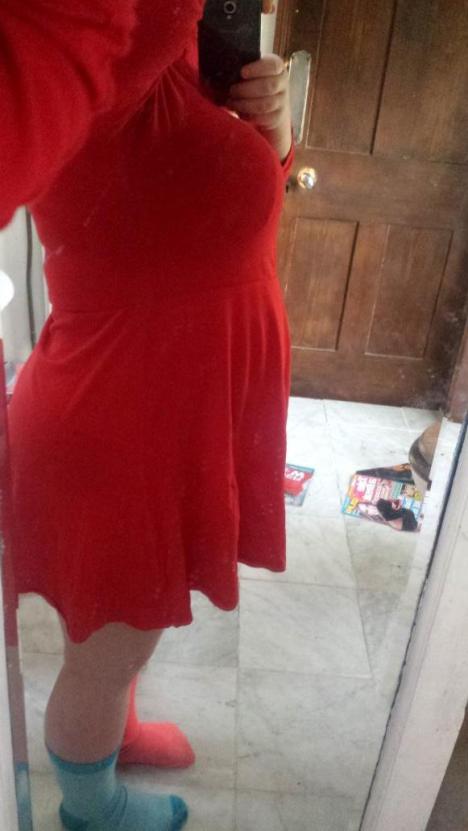
*bump*
Filed under: Bipolar Disorder, breastfeeding, charlotte bevan, feminism, medication, Mental health, mental illness, pregnancy | Tagged: Bipolar Disorder, birth plan, charlotte bevan, medication, Mental health, mental illness, motherhood, perinatal team, pregnancy | 30 Comments »
 The baby stage is passing with incredible swiftness. Here are some things I love (shared here and not just privately, who knows):
The baby stage is passing with incredible swiftness. Here are some things I love (shared here and not just privately, who knows):


